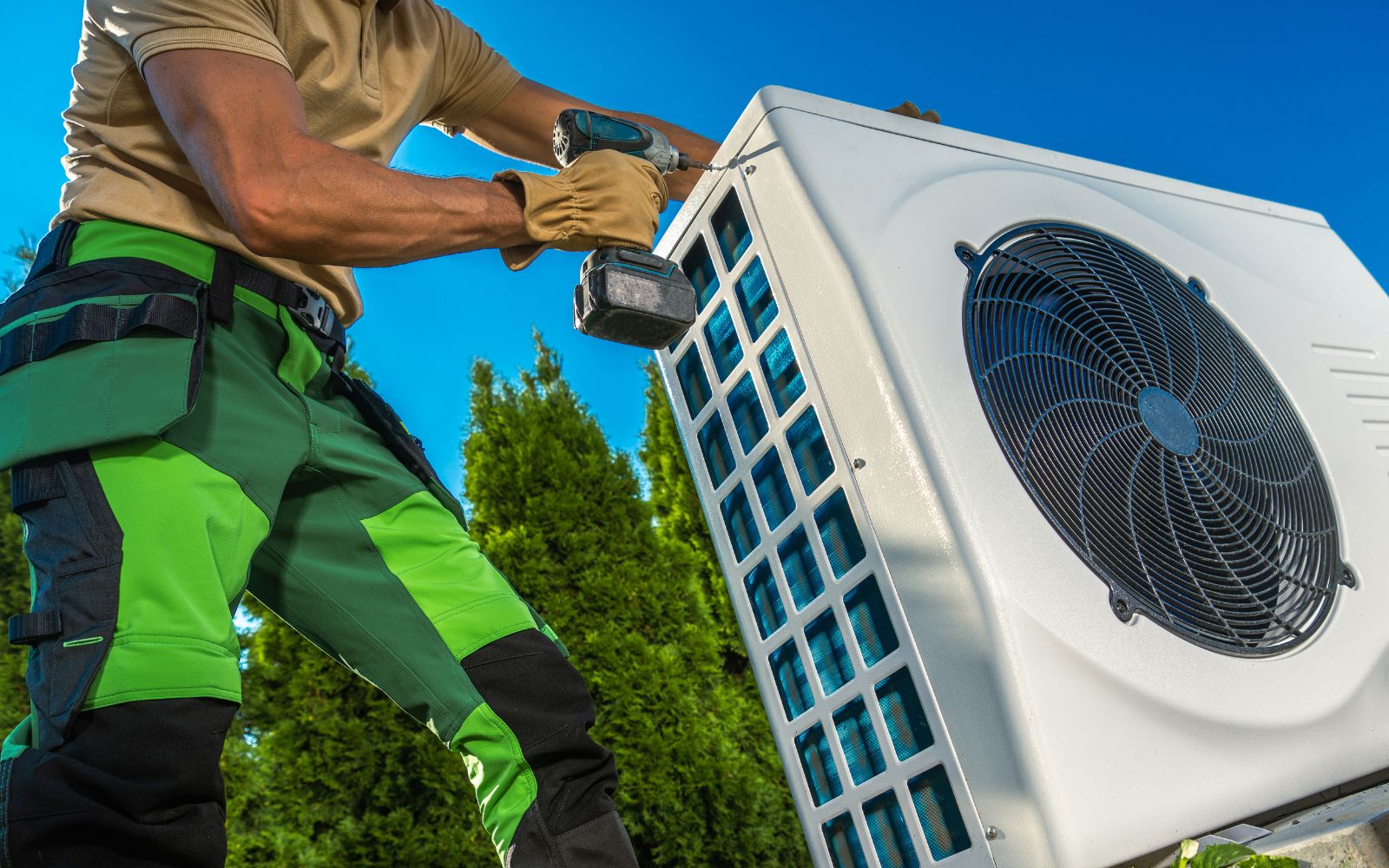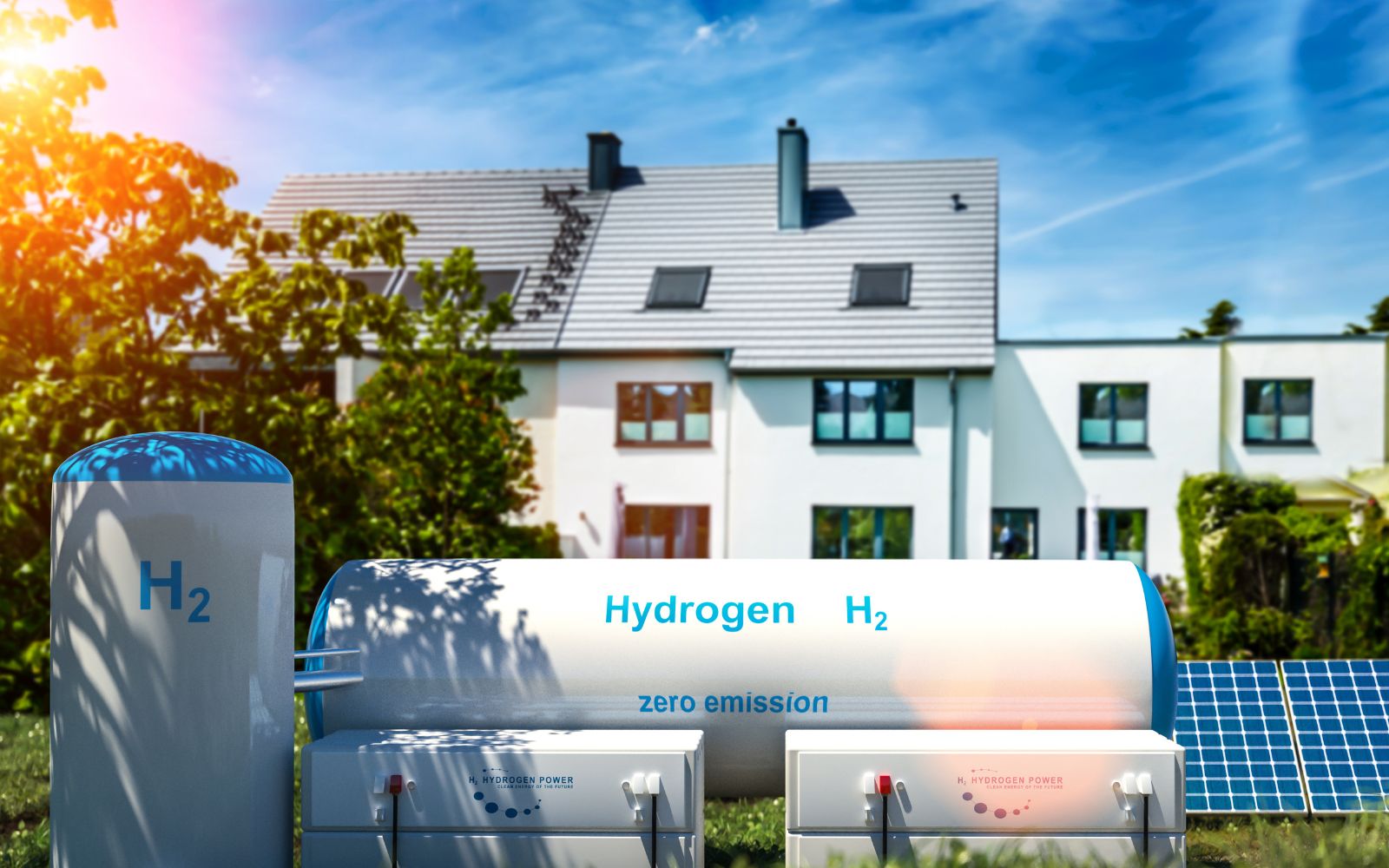
Heat Pumps And Hydrogen Fuel – Renewable Energy For Our Future
April 19, 2023Heat pumps and hydrogen fuel are being developed as part of the UK’s efforts to transition to a low-carbon economy, and many homeowners are joining in on this change.
There are many different options for people looking to invest in renewable energy. This article will primarily discuss heat pumps, how they work and their pros and cons, but it will also touch on hydrogen fuel. Helping you in making an informed decision on how you would like to heat your home.
The Future of Renewable Energy
As a population, we use various energy sources to fuel our daily lives. This includes things such as our homes, our water, our cars and our office spaces. We have grown accustomed to a life with abundant energy and power; without this, we would be lost.
Before we know it, the world will no longer have access to nonrenewable energy sources that we are mainly relying on, such as fossil fuels. This is why as a community that cares about its earth and environment, we need to take full advantage of the alternative and renewable energy sources we can.
This article will discuss just a few alternative energy sources that will fuel our future, such as heat pumps and hydrogen fuels.

What are Heat Pumps?
Heat pumps are a device that transfers heat from one place to another, using only a small amount of electrical energy. Essentially, the heat pump is a reversed refrigerator. This means that it moves heat from the outside to the inside of a building rather than removing heat from the inside and releasing it.
The most common type of heat pump is an air source heat pump, which does just this.
The heat pump works between an outdoor and indoor unit by circulating a refrigerant through a closed-loop system.
The heat pump’s outdoor unit contains a compressor that compresses the refrigerant and increases the temperature. This heated refrigerant is then circulated through a heat exchanger in the indoor unit and inserts warmth into the building. The cool refrigerant is returned to the outdoor unit, and the cycle begins again.
They can be used for heating and cooling, depending on whether you get an air-to-air system or an air-to-water system. Air-to-air heat pumps can reverse its refrigerant flow and are often known as reverse cycle air conditioners. Air-to-water heat pumps act more like a traditional boiler, or furnace, and also heat the hot water in your home to cycle around radiators and taps.
Do you want to learn more about heat pumps? Visit GreenMatch’s expert article on the pros and cons of air-source heat pumps.

What is Hydrogen Fuel?
Hydrogen fuel is another clean and sustainable alternative to traditional fossil fuels. It can provide the power that we need for a wide range of vehicles and equipment and your home or business, for example.
Hydrogen fuel is produced by extracting hydrogen gas from various sources, such as natural gas, water or biomass, which is then compressed and liquefied as it is turned into a fuel.
When hydrogen fuel is burned, it only produces water vapour and heat, which means no harmful emissions or pollutants are emitted into the air.
Some common examples of hydrogen fuel production are the electrolysis of water, steam methane reforming, biomass gasification, and photoelectrochemical water splitting. These use the renewable sources of wind, solar and biomass to produce the energy of the future.
Pros and Cons of Air Source Heat Pumps
Here are some key pros and cons of air-source heat pumps to consider when comparing them to other heating and cooling options for your home.
3 Pros of Air Source Heat Pumps:
Considering the pros and cons of the heating system you choose for your home is vital, and this option has plenty of attractive advantages.
- Heat pumps are often described as energy efficient as they can provide three times more heat than the electric energy they consume, resulting in significant energy savings and lower heating bills.
- As previously discussed, heat pumps provide energy through a renewable energy source and can be powered by energy sources, such as solar and wind, making them environmentally friendly.
- With their low maintenance and versatile operating system, air-source heat pumps will provide heating and cooling with ease for year-round comfort.
3 Cons of Air Source Heat Pumps:
We are not suggesting that heat pumps are perfect, and it’s essential to know both sides of the argument when choosing how to power and heat your home. Here are some disadvantages that are important to know before committing to a heat pump.
- Heat pumps can be expensive, and installation costs depend on the size and complexity of the system you need This is essential as the price may not be viable for your budget.
- Air source heat pumps and their efficiency can also be weather dependent. Therefore considering where you live may change your decision altogether. Air source heat pumps are less effective in freezing temperatures as the air outside contains less heat to be extracted. This means that a backup heating system may be necessary, especially in areas where very cold winters are typical.
- If you are limited in your space, there may be better choices than an air source heat pump for your home. These heat pumps, as previously mentioned, require outdoor space for the unit and may also require additional indoor space for the heat exchanger and other components necessary for the process.

Hydrogen Heaters and How They Work
As we work towards achieving net zero carbon emissions by 2050, the use of hydrogen for home heating is increasingly being considered as an alternative to fossil fuel like natural gas, which accounts for 85% of fuel used in heating and cooking. Hydrogen heaters are different from conventional heaters, as they use a fuel cell as an energy converter instead of burning gas or oil to generate heat. Hydrogen reacts with oxygen in the fuel cell to produce electricity and heat. Alongside hydrogen, heat pumps and hydrogen boilers are also gaining popularity as options for reducing carbon emissions in the heating sector.
However, the challenge remains in producing hydrogen at scale, which currently involves expensive green hydrogen production using renewable energy. Despite this, with hydrogen blending trials currently underway, experts are optimistic that the switch to hydrogen-based heating options will begin in the next decade, in line with government targets to cut carbon emissions.
In Conclusion…
These are all elements that might change your viewpoint on heat pumps. Still, suppose they fit your needs and work well with the space you are trying to heat. In that case, they are a great alternative heating system with high efficiency, versatile options, and considerable energy saving potential.



 With over 15 years of reporting hydrogen news, we are your premier source for the latest updates and insights in hydrogen and renewable energy.
With over 15 years of reporting hydrogen news, we are your premier source for the latest updates and insights in hydrogen and renewable energy.